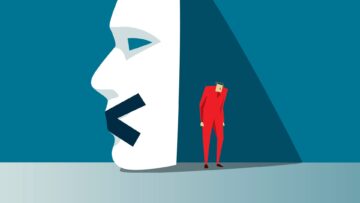Dan Falk in Undark:
 THE WORD CENSORSHIP might bring to mind authoritarian regimes, book-banning, and restrictions on a free press, but Cory Clark, a behavioral scientist at the University of Pennsylvania who has been studying censorship in science, is interested in another kind. In a recent paper published in The Proceedings of the National Academy of Sciences, Clark and 38 co-authors argue that, in science, censorship often flows from within, as scientists choose to avoid certain areas of research, or to avoid publishing controversial results. As they write in the paper: “Our analysis suggests that scientific censorship is often driven by scientists, who are primarily motivated by self-protection, benevolence toward peer scholars, and prosocial concerns for the well-being of human social groups.”
THE WORD CENSORSHIP might bring to mind authoritarian regimes, book-banning, and restrictions on a free press, but Cory Clark, a behavioral scientist at the University of Pennsylvania who has been studying censorship in science, is interested in another kind. In a recent paper published in The Proceedings of the National Academy of Sciences, Clark and 38 co-authors argue that, in science, censorship often flows from within, as scientists choose to avoid certain areas of research, or to avoid publishing controversial results. As they write in the paper: “Our analysis suggests that scientific censorship is often driven by scientists, who are primarily motivated by self-protection, benevolence toward peer scholars, and prosocial concerns for the well-being of human social groups.”
Disagreements between and among scientists are not new, nor is the struggle to maintain public trust in science. Still, Clark believes many disputes could be resolved if scientists with differing viewpoints worked together. To that end, she serves as director of the Adversarial Collaboration Project at Penn. The project, based on ideas first articulated by Daniel Kahneman, a Princeton professor and winner of the 2002 Nobel Prize in economics, seeks to bring scientists with differing ideologies together. As the project’s website puts it, the goal is “to stimulate a culture shift among social and behavioral scientists whose work touches on polarizing topics with policy significance by encouraging disagreeing scholars to work together to make scientific progress.”
More here.
Enjoying the content on 3QD? Help keep us going by donating now.
